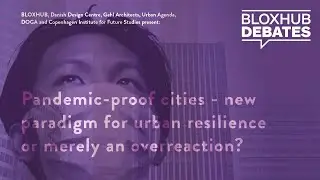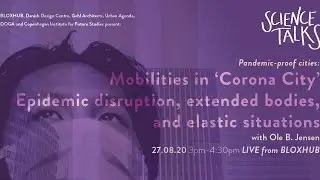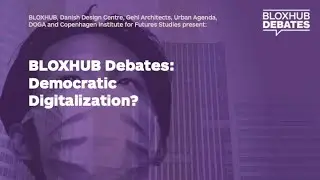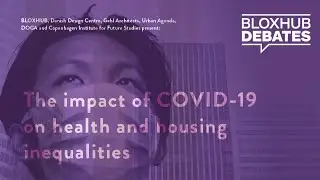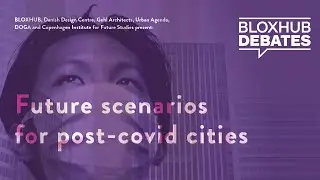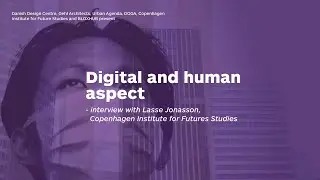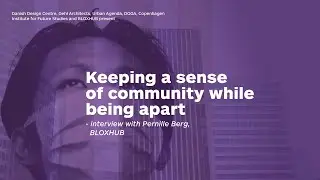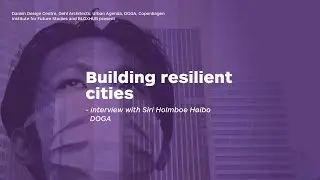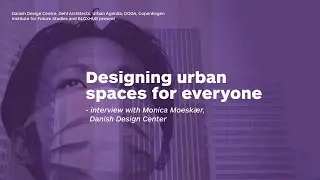BLOXHUB Debates: Democratic Digitalization?
Through a Nordic partnership between DOGA – Design and Architecture Norway, Danish Design Centre, BLOXHUB, Gehl Architects, Copenhagen Institute of Futures Studies and Urban Agenda, we dive into the dilemmas of pandemic-proof cities and help generate the best solutions for restarting the good life in our cities.
How will our cities change post-pandemic? What can we do as citizens, urban planners, architects, designers and decision-makers to ensure the right restart for our cities – and protect ourselves against future pandemics?
In this debate we talk about the Danish app “Smittestop”, an app for tracking and preventing spread of infection. Is this a democratic way of coping with the pandemic, do the people living close together in the cities even download the app, and what about the question of data security? The app adds to the Danish strategy, but cannot stand on its own. The same goes for the future prospect of tech; we need to use tech opportunities as tools in a larger toolbox.
The debate also touches upon the question of public vs. private responsibility. The key point is that the two sectors should work more closely together drawing on the agility and scalability of private companies combined with the stability of the public sector in creating long-lasting digital solutions.
Digitalization has made access to information, power and influence more democratic than ever. But has democratic society and the rules, laws and norms that define the balance between public and private, citizen and politician responded to this digital advancement? The COVID pandemic is a true test of how democratic our current digital society is.
From contact tracing, to supporting local business, to leveraging massive smart city data sets, our digital society gives us the tools to fight this pandemic and bounce back stronger than before. But who’s responsibility is it to ensure these digital tools truly strengthen our democracy rather than undermine it? What is the role of in-person interaction and actual places where these digital issues collide such as the neighborhoods where we support our local businesses, the streets that we use or don’t use to commute to work, or the location where we come into contact with a person with COVID-19? These are the questions and perspectives the panel will discuss.
Moderator: Jeff Risom, Chief Innovation Officer, GEHL
Panelists:
Heidi Boye, Country Manager, Too Good To Go
Marius Sylvestersen, Head of Copenhagen Solutions Lab, City of Copenhagen
Nanna Skovgaard, Head of Division, Sundhedsministeriet
Kåre Løvgren, Spokesperson for the IT, data ethics, and cyber security areas, IDA
____________________
Chapter & themes:
Click and see 0:20 Chapter 1: Jeff Risom introduce Nanna Skovgaard and Kåre Løvgren, and present the first sessions topics about the danish app "Smittestop" and how the app works, which pros and cons it has. Then they go on to talk about what, the digitization we have learned through the app and, how we can use it to make more useful healthcare system in the future.
Click and see 30:55 Chapter 2: Jeff Risom introduce Heidi Boye and Marius Sylvestersen and present the second sessions topic, about a concept called "Support Local Campaign" that was launched during the lockdown. Then they go on to talk about, the public and private sector, how they work together and what could be working better.
How should we plan for the next pandemic?
COVID-19 poses a fundamental challenge for our future cities. Across the globe, urban actors are debating whether we need to start taking new measures to protect ourselves against pandemics. Simultaneously, many are calling for a more sustainable restart of the global economy. Is it possible to create pandemic-proof cities without jeopardizing the positive tenets of urban development in the past decade: Livability and sustainability?
___________________
This event is a part of an event series with the theme:
City Life in Times of and after Corona
How will our cities change post pandemic? What can we do as citizens, urban planners, architects, designers and decision makers to ensure the right restart for our cities – and protect ourselves against future pandemics? How do we create solutions that ensure resilience, but do not compromise on livability and sustainability?
Through a new Nordic partnership between DOGA – Design and Architecture Norway, Danish Design Centre, BLOXHUB, Gehl Architects, Urban Agenda and Institute of Futures Studies, we will dive into the dilemmas of pandemic-proof cities when it comes to climate, behavior, design and livability and help generate the best solutions for restarting the good life in our cities.








